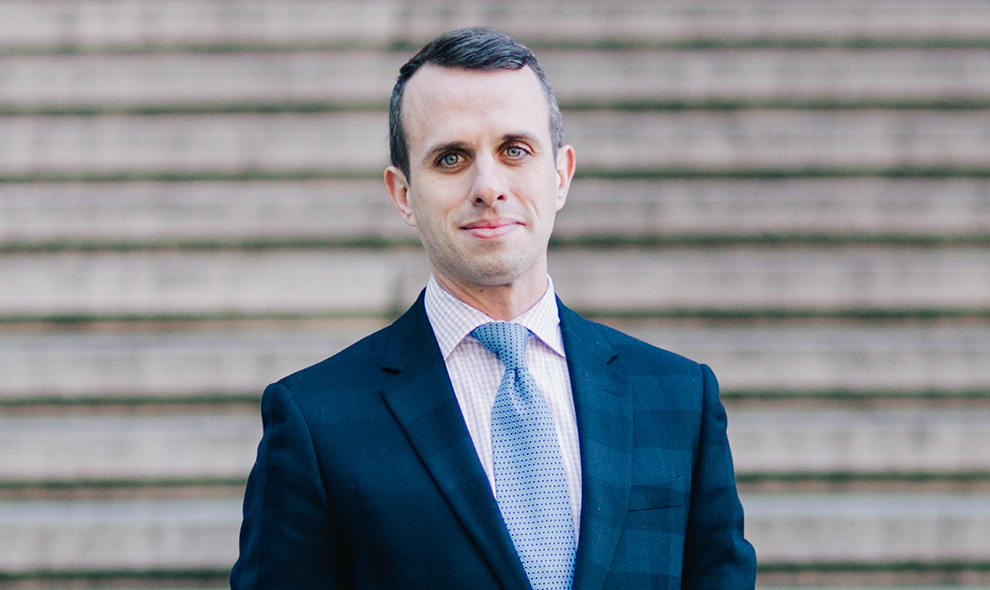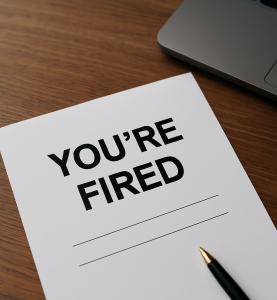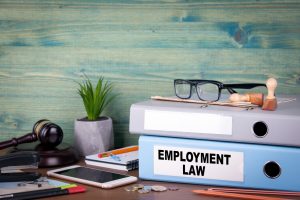The COVID-19 virus has had a lasting impact on employer-employee relationships. If you think you’ve been treated unfairly at work with respect to the impact of the coronavirus, don’t hesitate to contact Phillips & Associates for a free consultation. Steven Fingerhut is a partner at Phillips & Associates who represents individuals whose rights have been violated in the workplace. Employees everywhere are having to handle their own unique and challenging circumstances arising from the pandemic. People that typically work regular, full-time hours are suddenly needing to care for their children during work hours because of reduced access to daycare or school. Others have to provide extra care for elderly or sick family members or friends who are considered high-risk for infection. All of these added stressors do not even encompass the employees’ need to cope with their own stress and anxiety experienced as a result of the pandemic. Thankfully, there are several protections for employees that are meant to balance their needs with the needs of businesses that are also struggling to stay afloat during the pandemic.
Additionally, for employees that have been employed for at least 30 days, there may be an automatic entitlement to 10 weeks paid expanded family and medical leave.
City and state statutes, in conjunction with the Families First Coronavirus Response Act (“FFCRA”), afford a wide array of protections for employees returning to work. Broadly speaking, a person should not suffer a loss of employment due to their need to quarantine and isolate after having been diagnosed with the virus. However, what about employees that cannot report to work for any number of other coronavirus-related reasons? For instance, is a person’s job protected if they have to quarantine after having potentially been exposed to someone else that was diagnosed with the virus? In some cases, employees may be able to telework but often remote work is not possible. What are the options for these employees? What about employees that cannot telework and need to care for children without daycare, or a high-risk elderly relative with whom they live? In certain circumstances, the FFCRA will provide some additional job protection for employees unable to return to work. We’ll discuss these circumstances next.
Fortunately, even when work-from-home is not an option, the FFCRA provides for job-protected Paid Time Off (“PTO”) for circumstances like this. For example, if an employee tests negative for Covid-19, but is advised by a doctor to quarantine due to a potential exposure, the FFCRA allows for supplemental, job-protected PTO. This applies to a parent who is alerted that their child was in a class with another student who tested positive for the coronavirus and the class must continue virtually. The parent may be entitled to up to 80 hours of expanded paid sick leave to care for their child who cannot be home alone. Depending on the circumstance, employees may either be entitled to expanded paid sick leave at their regular rate of pay or paid sick leave at some percentage of their regular rate of pay. Additionally, for employees that have been employed for at least 30 days, there may be an automatic entitlement to 10 weeks paid expanded family and medical leave.
The FFCRA provides strict guidelines that must be followed by employers for employees’ safe return to the workplace.
Some employees who do not want to return to work during the pandemic but aren’t otherwise qualified under the FFCRA may have no recourse other than to file for unemployment insurance benefits. Due to the pandemic, eligibility for unemployment benefits has expanded greatly. Refer to the Department of Labor website or contact an attorney if you have questions about your own eligibility for unemployment. Generally, if the reason you are not able to work is related at all to the Covid-19 pandemic, you may be eligible for benefits.
The interplay between an employees’ job protections and their unique circumstances is hard to navigate and requires a thorough analysis. You should contact an attorney if you believe your job may be in jeopardy because of your need for leave due to state mandated quarantine guidelines.
How do the new regulations impact employees’ return to work as per the state’s phased reopening plan? The FFCRA provides strict guidelines that must be followed by employers for employees’ safe return to the workplace. The guidelines include limitations on office occupancy well below capacity, enforcement of mask-wearing and social distancing practices, and posting of notices which alert employees to their rights and protections under the Act. The guidelines additionally provide for a system through which employees certify daily that they are not at risk and have not been potentially exposed. If possible, employees should have their temperatures taken daily to confirm that they are not at risk of infection or showing any symptoms. An employer has the responsibility to ensure that an employee’s confidential medical information is not disseminated or even saved. This means that though employees’ temperatures should be taken, specific temperature readings should not be documented, saved in any file, or recorded. If your workplace isn’t employing safe practices per the FFCRA, it would serve you well to contact an attorney. There are many steps that employers can take to make the workplace safe and companies should not be cutting corners. A consultation with an attorney can help you determine if your employer is following the guidelines properly.
There are instances in which the decision to terminate an employee may in truth be premised on an unlawful reason, but the employer merely blames the pandemic.
Coronavirus-Related Layoffs
The coronavirus has had, and continues to have, a devastating impact on the economy, particularly in certain industries such as retail, food and beverage, air-travel, and hospitality. Massive layoffs have been effectuated as a result of some employers’ total dissolution/insolvency or significant downsizing in an attempt to avoid bankruptcy. Many companies have had to institute furloughs and slash salaries in an effort to survive the economic downturn. Employers will have broad deference to make business decisions necessary to stay afloat. In some cases, companies have targeted job elimination of more senior employees to reduce their payroll expenses, since the longest tenured employees often have the highest salaries. It can be especially difficult for long-term employees to suddenly suffer job loss. An employee may have a cause of action for unlawful termination if they believe they’ve been targeted due to their membership in a protected category: race, sex, disability status, pregnancy, religion, sexual orientation, etc. However, mass layoffs are not typically effectuated in a way that could support a claim for unlawful termination.
There are instances in which the decision to terminate an employee may in truth be premised on an unlawful reason, but the employer merely blames the pandemic. In some cases, employees are told that their positions are being eliminated due to the coronavirus only to learn at a later date that they have been replaced. If you have reason to believe that a termination may be premised on age, or the need for an accommodation due to a disability, contact an attorney. The coronavirus is not an excuse for employers to discriminate against employees on an unlawful basis. These employers may be opening themselves up to unlawful termination claims.
At our firm, we've uncovered pregnancy discrimination claims in a similar context. An employee lets her employer know that she is pregnant. Shortly after, her employer terminates her employment and claims it is due to economic difficulties stemming from the coronavirus pandemic. The employer then replaces the pregnant employee with a non-pregnant employee. In this scenario, there may be a claim for an unlawful termination. Any pregnant women who experience a termination under these circumstances should be especially concerned if their employer has made any comments expressing frustration at the “inconvenience” of employing a pregnant employee. Employers should not begrudge a pregnant employee for the time they will necessarily need off for maternity leave. They should similarly not make comments about the ability of the pregnant employee to continue working through her pregnancy. Additionally, if a pregnant employee makes any request for a work-related accommodation because of complications caused by her pregnancy, the employer cannot summarily decide that it is “too risky” to continue employing her during the pandemic. The same is true for employees with disabilities that are able to continue working with reasonable accommodation. Employers cannot use the pandemic as a rationale to decide that those employees necessarily need to be out of work.
At Phillips & Associates, we represent plaintiffs in a wide variety of employment matters. Job loss in the wake of the coronavirus can be complicated to navigate. If you have questions about the circumstances under which your employment was terminated, don’t hesitate to reach out to our firm for a free consultation.
Steven Fingerhut
Partner
45 Broadway, Suite 430
New York, New York 10006
(212) 248-7431 ext. 216 (telephone)
(212) 901-2107 (facsimile)
www.newyorkcitydiscriminationlawyer.com





















